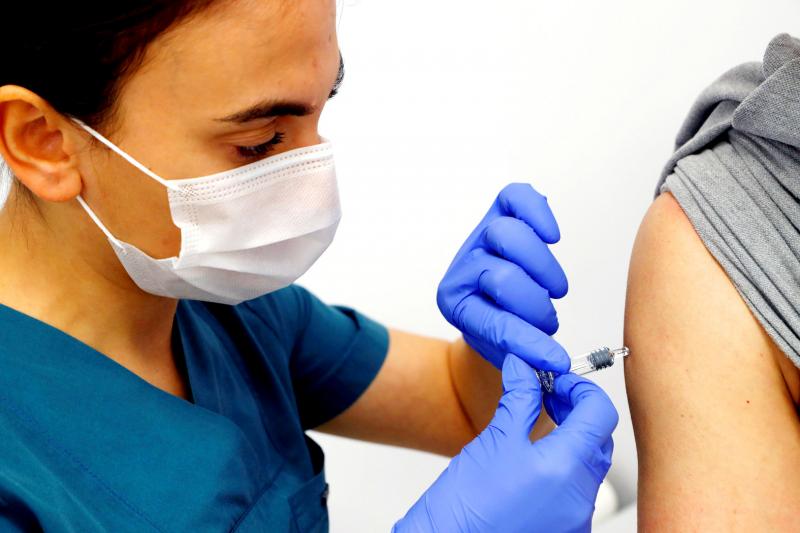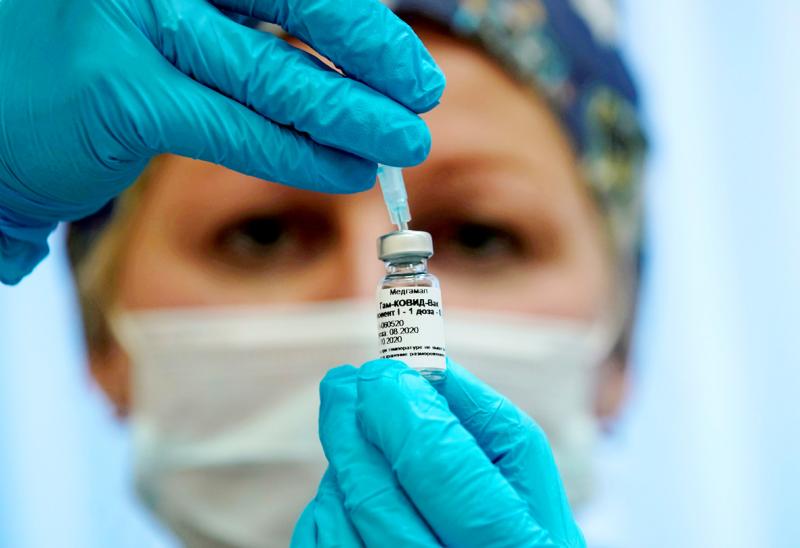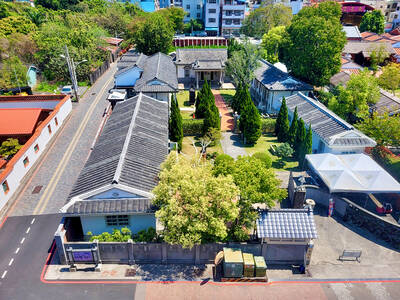The world is racing towards a vaccine in record time, stirring public concerns about safety to the extent that nine leading developers have felt compelled to issue a pledge to uphold scientific standards and testing rigor.
Yet, while more than 40 experimental COVID-19 vaccines are being tested on humans, the insurance companies with decades of experience in assessing the risks of clinical trials don’t see anything to be unduly concerned about.
Executives at insurer Allianz and brokers Gallagher and Marsh, among the leading players in clinical trials insurance, said that premiums had only marginally increased so far in the current pandemic.

Photo: Reuters
They argued there was little structural difference to trials carried out in the past, despite drugmakers around the world competing to shatter the fastest time in history for developing a vaccine, which stands at around four years.
“Rates have been relatively stable. Even this year we have so far seen only moderate price increases on average, with higher price jumps for particularly exposed COVID-19 trials,” said Mark Piazzi, senior underwriter liability at Allianz Global Corporate & Specialty (AGCS).
This was echoed by David Briggs, managing director, life sciences practice at Gallagher, who said every trial was rated on its methods and the kinds of patients involved.

Photo: Reuters
Gallagher said premiums in Britain, for example, started at about £5,000 (US$6,500) per trial.
Total claims limits in policies were typically set at roughly US$6 million to US$12 million, depending on the country’s rules, according to several insurance companies.
In Britain, for instance, claim limits were usually set at no lower than £5 million, while in Germany the figure was around 10 million euros (US$11.8 million).
‘LOSS EXPERIENCE NOT DRAMATIC’
However part of the reason why premiums have not risen as sharply as some people might have expected is that claims from trial are generally uncommon, according to executives. This is because patients have often signed so-called informed consent agreements, they said.
Jim Walters, managing director of Life Sciences & Chemical Group at broker Aon, said such agreements outlined the risks that patients were taking by participating in the trial.
“So, you know, everything from you could have a sore spot on your arm. To you could potentially die. And you know, they would literally go that far in some of these protocols,” he added.
“Those generally tend to hold up in courts and in legal systems around the world. That means that the loss experience coming out of clinical trials is not very dramatic.”
Claims are often limited to circumstances linked to the improper conduct of trials or any wrongdoing, rather than side-effects of the treatment, executives said.
Such have been the worries about the vaccine race among some members of the public, who fear safety standards could slip, that nine developers issued a joint pledge last month to “uphold the integrity of the scientific process”.
ASTRAZENECA TRIAL SUSPENSION
AstraZeneca and Oxford University’s suspension of global Phase III trials of their experimental COVID-19 vaccine early last month due to a participant’s illness brought the risk of side effects in clinical trials to the public fore.
But the insurers said such delays were not unexpected, and could even reflect the extra caution of vaccine developers given the lack of data about COVID-19.
“Side effects always happen with clinical trials, but these are typically mild and expected. It is not very common to delay or suspend trials, it does happen though,” said Piazzi at AGCS, whose main peers in underwriting trials include Chubb, HDI and Fairfax’s Newline.
“Pharma companies and insurers alike are even more careful than usual with COVID-19 trials because there is so much at stake, particularly for the patients’ safety.”
All trials of the vaccine candidate have resumed, with the exception of the US study.
There have been examples in recent memory of drug trials going catastrophically wrong, though.
In 2016, one participant died and five were hospitalized in a Phase I trial run by French company Biotrial in the city of Rennes, testing an experimental mood brightener made by Portuguese drugmaker Bial.
In 2006, six patients required intensive care after receiving a potential treatment against leukaemia and auto-immune disease in London. One was described as looking like “the elephant man” after his head swelled. Another lost fingertips and toes. Germany’s TeGenero, the initial developer of the medicine, folded.
But insurance executives stress such disasters are rare, given the thousands of clinical drug trials being carried out every year.
Walters of Aon, speaking about the 2016 trial, said it was “obviously a horrible situation.”
“But that’s one of very few incidents of really bad loss experience that the industry has faced. So, clinical trial insurance is not hugely expensive. Let’s put it that way.”

April 28 to May 4 During the Japanese colonial era, a city’s “first” high school typically served Japanese students, while Taiwanese attended the “second” high school. Only in Taichung was this reversed. That’s because when Taichung First High School opened its doors on May 1, 1915 to serve Taiwanese students who were previously barred from secondary education, it was the only high school in town. Former principal Hideo Azukisawa threatened to quit when the government in 1922 attempted to transfer the “first” designation to a new local high school for Japanese students, leading to this unusual situation. Prior to the Taichung First

Chinese Nationalist Party (KMT) Chairman Eric Chu (朱立倫) hatched a bold plan to charge forward and seize the initiative when he held a protest in front of the Taipei City Prosecutors’ Office. Though risky, because illegal, its success would help tackle at least six problems facing both himself and the KMT. What he did not see coming was Taipei Mayor Chiang Wan-an (將萬安) tripping him up out of the gate. In spite of Chu being the most consequential and successful KMT chairman since the early 2010s — arguably saving the party from financial ruin and restoring its electoral viability —

The Ministry of Education last month proposed a nationwide ban on mobile devices in schools, aiming to curb concerns over student phone addiction. Under the revised regulation, which will take effect in August, teachers and schools will be required to collect mobile devices — including phones, laptops and wearables devices — for safekeeping during school hours, unless they are being used for educational purposes. For Chang Fong-ching (張鳳琴), the ban will have a positive impact. “It’s a good move,” says the professor in the department of

Toward the outside edge of Taichung City, in Wufeng District (霧峰去), sits a sprawling collection of single-story buildings with tiled roofs belonging to the Wufeng Lin (霧峰林家) family, who rose to prominence through success in military, commercial, and artistic endeavors in the 19th century. Most of these buildings have brick walls and tiled roofs in the traditional reddish-brown color, but in the middle is one incongruous property with bright white walls and a black tiled roof: Yipu Garden (頤圃). Purists may scoff at the Japanese-style exterior and its radical departure from the Fujianese architectural style of the surrounding buildings. However, the property